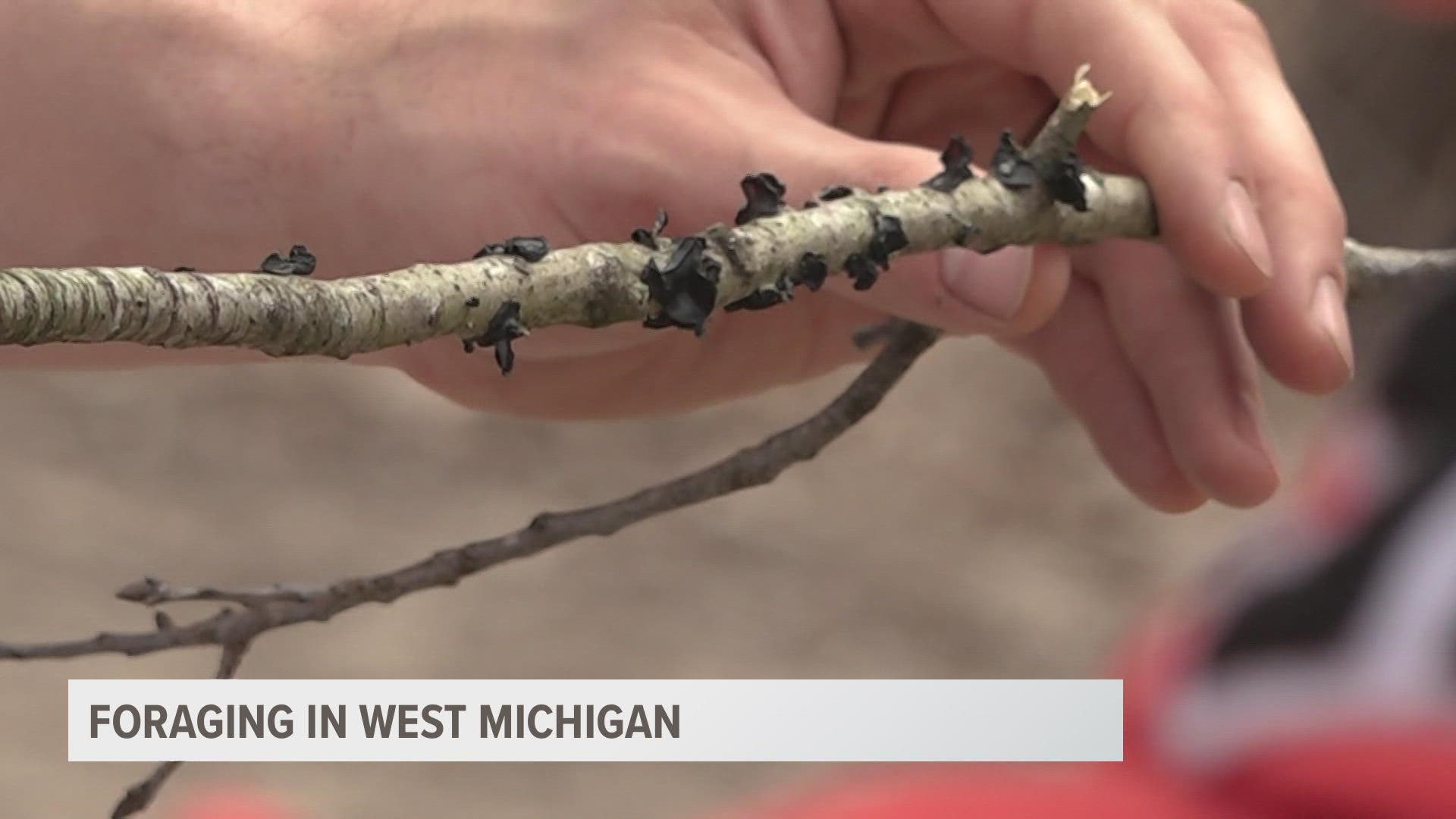GRAND RAPIDS, Mich. — As the price of groceries continues to rise, foraging is becoming more popular. If you’re not familiar, this is where people search for their own food out in nature. It may sound simple, but there are some very important things to know before eating what you find in the woods.
Thankfully, a local couple is ready and willing to help. Katie and Luke Venechuk have been foraging in West Michigan for years, and they regularly share their knowledge with locals.
Katie is the founder of In Your Element Wellness, a company that offers nature-based programs throughout the year. She offers a variety of classes, including forest bathing and yoga, but it’s the foraging that offers a truly unique experience.
“In these classes, we talk about all of the different wild edibles and medicinal plants that we can find in the forest, based on the time of year,” Katie said. “We help people understand how to identify, how to ethically harvest, how to legally harvest and all the different gifts of nature that we tend to pass and kind of just see it as a wall of green, but they each have their own individual characteristics.”
She said her first adventures in foraging came many years ago while hiking. She wanted to add natural flavor to her food without having to carry extra stuff. Since then, Katie said she’s done formal training and continues to learn through personal experiences. She recommends others do the same before consuming anything found in nature.

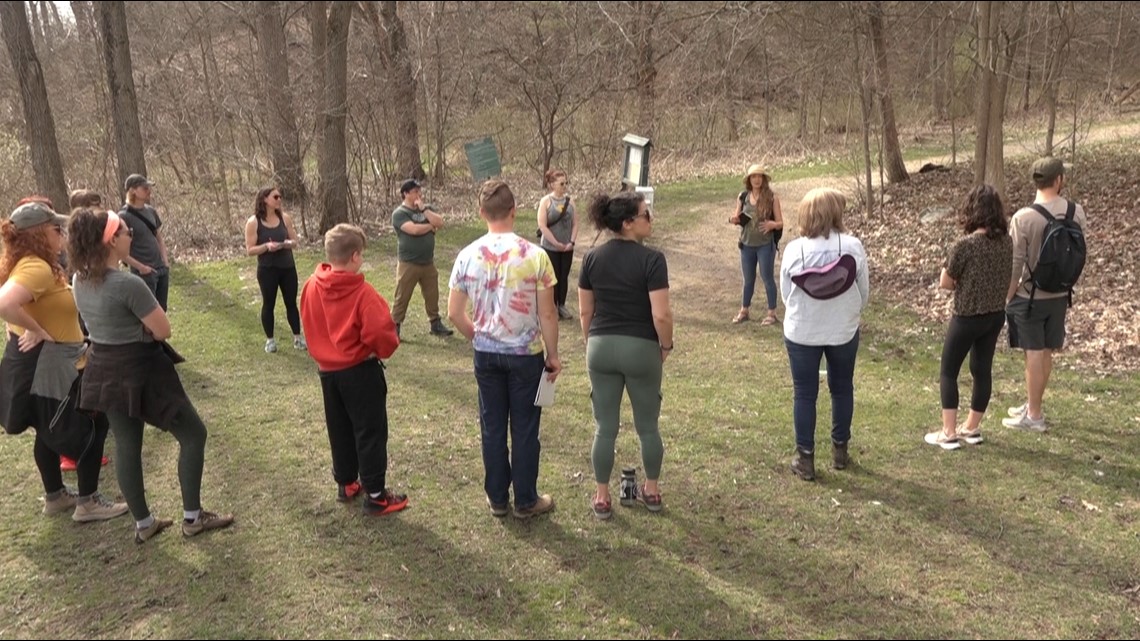
“It takes quite a while to learn a plant,” Katie said. “There are so many details, so it's important to have a couple of resources to verify what it is you're eating or using in any way before you have it interacting with your body. I like to lean into published books. There are some really wonderful foraging books that are written by local herbalists and different folks throughout Michigan and throughout the Midwest. Foraging books over blogs are usually a good way to go, because blogs are always written with wonderful intention, but they're not necessarily always cross referenced.”
Her rule of thumb is to always have at least three reputable sources. And no, the app on your phone does not count.
“Those are a wonderful source to have, but that's just a hint. It's a clue, a starting point,” Katie said. “Foraging is a lifetime learning experience, and we don't necessarily learn to forage. We learn a plant, and then we learn another plant, and then we learn another plant. There is a moment in your experience when you're starting to learn about a particular plant where it becomes so familiar that it's like a flashlight on the landscape.”

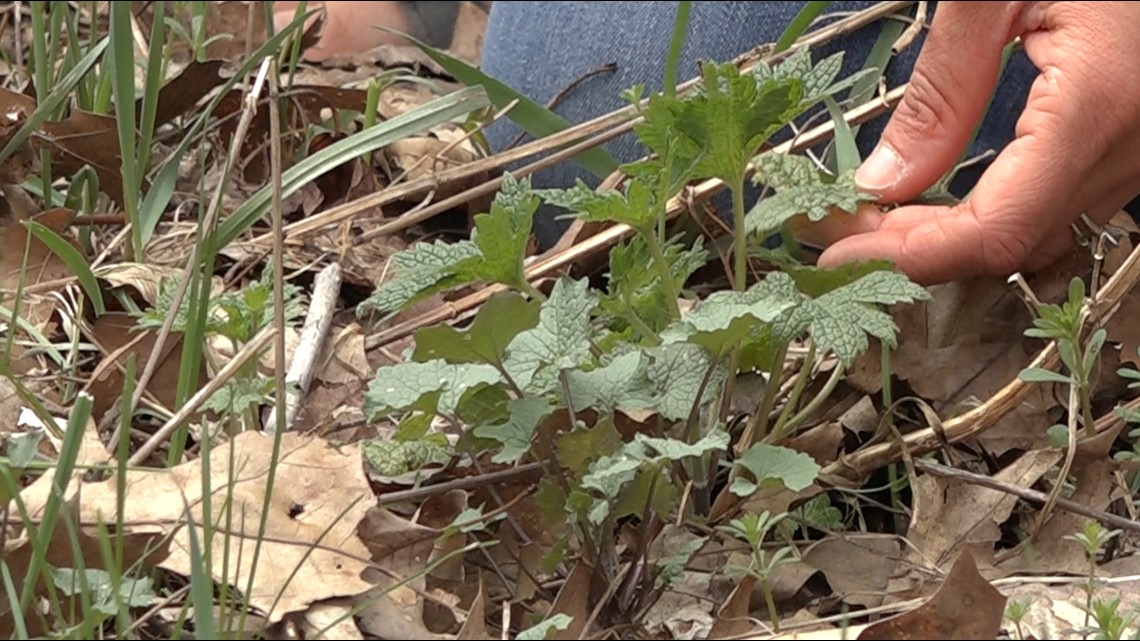
Like anything, if you study for long enough, you’ll eventually become familiar with it. She likened it to studying for a test, but with plants, you’re able to also use more of your senses.
“If you take time to sit and notice what you can also learn through looking closely, through touching and smelling, through really taking time to notice all the different aspects of this plant, you'll get to the point where you are so familiar with it and recognize it so well, that you have that confidence,” Katie said. “It's like when you go to the grocery store and you see an apple. You're like ‘that's an apple.’ If somebody said ‘that's a pineapple,’ you'd say ‘no, it's not. It's an apple.’ You get to that point! Once you start to really pay attention, there are very distinct differences. It's just about being patient and starting small. And if there's a plant that you're a little anxious about, it's always nice to spend time with it through a whole year. Get to know it through its whole growing season, and then when you're comfortable, you can eat it.”

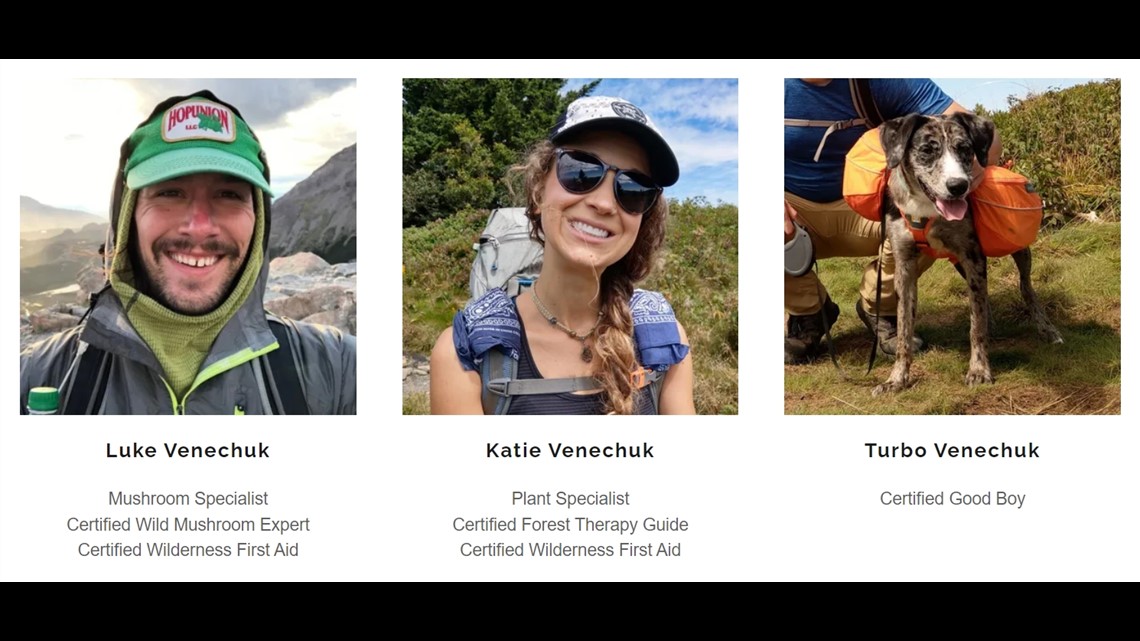
While Katie specializes in plants, her husband Luke is a mushroom specialist and the founder of Can I Eat This Foraging Company. He’s licensed by the state of Michigan to sell foraged mushrooms at farmers markets and to restaurants.
“It really started with some very knowledgeable parents that wanted to share what they knew and their love of nature,” Luke said. “We have been taking it more seriously and really getting organized for the past 2 or 3 years.”
When it comes to wild food, he said, it’s important to know what you're eating.
“There are some plants that can do you serious harm and put you in the hospital right away. There are mushrooms that can do that as well,” Luke said. “There are a lot of very tasty gourmet mushrooms, but there are also mushrooms that can hurt you if you misidentify them and eat them. There are toxic mushrooms.”
He said there are multiple considerations a person needs to take, anytime they’re foraging. First and foremost – safety.

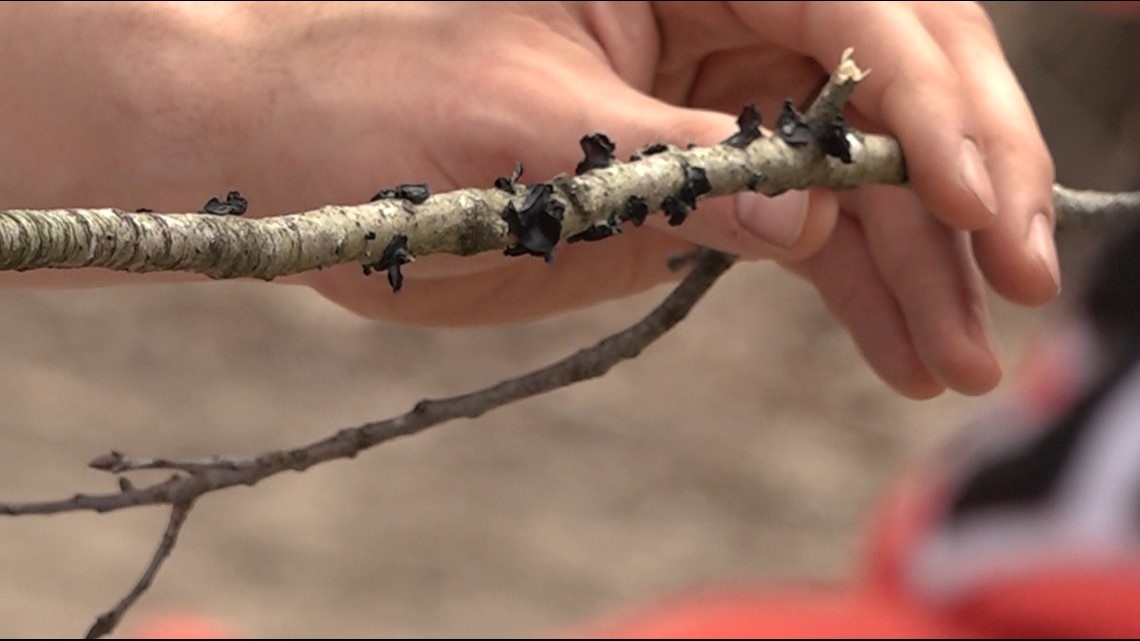
“You 100% need to be certain of what you're eating before you put anything in your mouth or in your body,” Luke said. “The next one is ethical foraging. You don't want to go into the woods or any wild place and take more than you should and hurt a population or hurt the balance of life that's out there. The third one is the legality. You are allowed to do some foraging in certain places, but you are not allowed to do maybe the same type of foraging in other places. So, it's important to know what the laws are wherever you're at, what you can do and what you can't do. It's important to know the ethics of what is okay for a plant population or a mushroom population, and what’s harmful to it.”
He said the weekly foraging classes have allowed he and Katie to continue expanding their realm of knowledge and share it with others. He said all the classes have been well received and he wishes they could do them more often.
“We've met a lot of wonderful people," Luke said. “It's expanded our life, and we get outside a lot because of it. We appreciate the ones around us and the seasons, so it's been really great. From a personal standpoint, it's been fun for us, but also I think it's nice for people to have a reason to get out in nature in Michigan and appreciate what all is around us.”

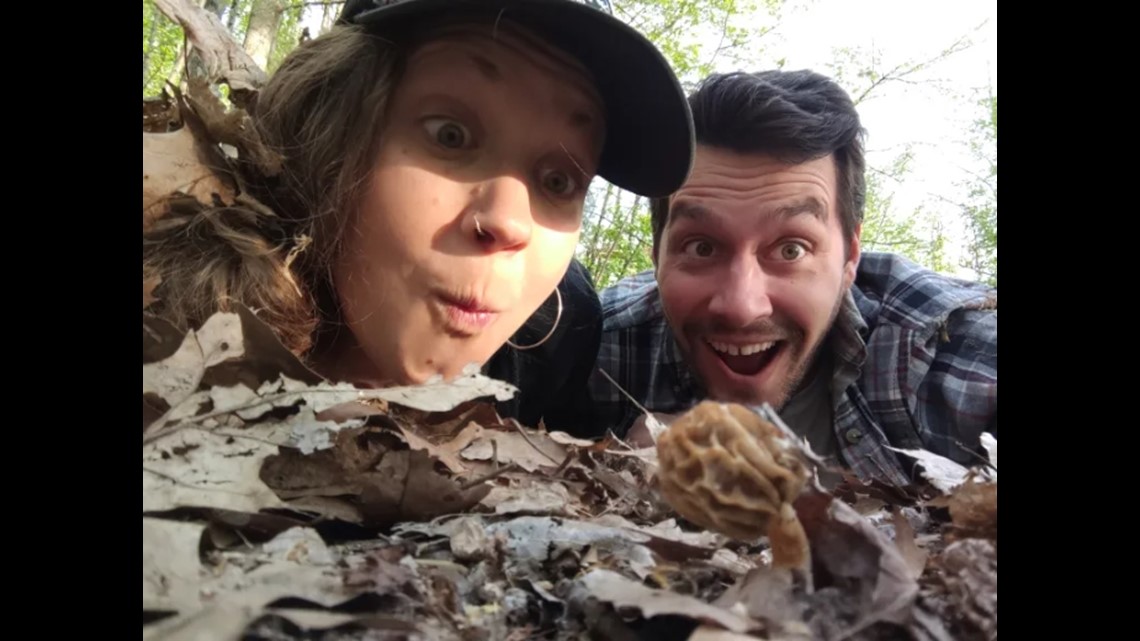
“We can spend a lot of time learning technology and Instagram and social media, and then in five months it changes,” Katie said. “But if you learn a plant, then you will always know it all the way up until your old age. You'll walk through and you'll say ‘hey, I know this plant, I've enjoyed it my whole life, and I've been eating it.’ The world shifts to feeling like a gift, and when you share that with your family, it really is a special thing.”
Katie and Luke recently launched a new program called Rent-A-Forager where they come to your property and teach you about the edible plants and mushrooms that are growing on your land. To learn more, click here.
►Make it easy to keep up to date with more stories like this. Download the 13 ON YOUR SIDE app now.
Have a news tip? Email news@13onyourside.com, visit our Facebook page or Twitter. Subscribe to our YouTube channel.

